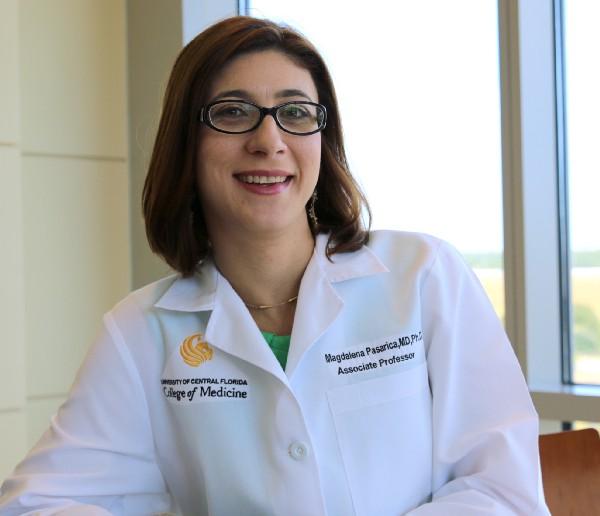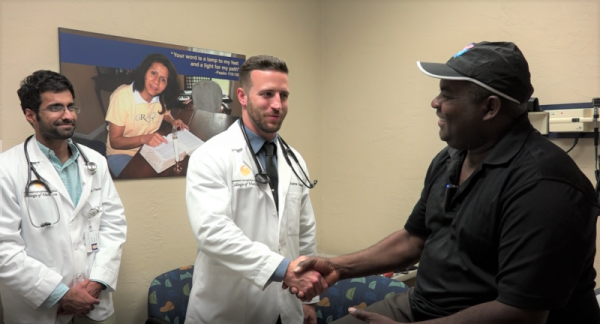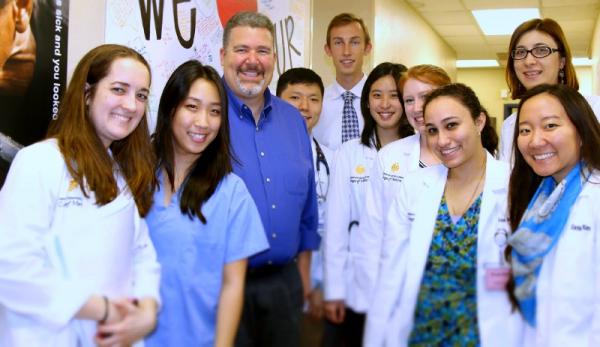April 10, 2017
Interview with Dr. Magdalena Pasarica, Faculty Advisor and Medical Director for the KNIGHTS Student-Run Free Clinic at University of Central Florida College of Medicine
The KNIGHTS (Keeping Neighbors In Good Health Through Service) Clinic is coordinated by medical students at University of Central Florida College of Medicine (UCF COM) and staffed by student and physician volunteers from all areas of study. Under the guidance and supervision of faculty advisors, medical students, in collaboration with pharmacy and social work students provide medical care for the underserved and uninsured. One component of this extracurricular program increases students’ knowledge, skills and confidence in assessing, managing and counseling patients with obesity.
We chatted with Dr. Pasarica to discuss why the KNIGHTS Clinic chose to focus on obesity prevention and counseling and the impact it’s having on their students and the community.
Q: Why did you choose to focus obesity prevention and counseling? Why is this so important?
A: Obesity is associated with multiple comorbidities and, conversely, healthy lifestyle behaviors are associated with improved life expectancy. Yet, one of the current problems in obesity/lifestyle management is that a lot of health care providers are not focusing on it perhaps because of a lack of knowledge, skills, and confidence. Therefore, there’s a critical need for new ways to teach obesity prevention and lifestyle management. I got a PhD in nutrition after graduating from medical school because I realized obesity was becoming one of the biggest public health challenges we had and I wanted to be ready to fight it. And the bottom line is that lifestyle improvement works, whether we have obesity or not, to prevent disease both chronic and acute.
Q: What is the major innovation of your program?
A: We’ve succeeded in addressing and treating patients with obesity in a student-run free clinic. This is a big deal because at our clinic, students, who are just trainees, have the opportunity to learn, organize and practice counseling patients with obesity, giving them more experience off-the-bat than many physicians.
Q: What’s one surprising lesson you’ve learned from this program?
A: Something that surprised us is that patients are very happy and grateful to receive counseling about a healthy lifestyle and were willing to spend the time it takes to provide comprehensive care and set goals.
Q: What’s one piece of advice for other health care provider training and education programs thinking about doing something similar?
A: First, students need a knowledgeable advisor who committed to this work. Second, students need to go through a bit of trial and error to improve the process that will increase patient outcomes. Third, it’s critical to keep the improvement in patients’ health in mind when doing this work, which will keep you motivated to create a program for obesity prevention and lifestyle management.
Q: What’s your hope for the legacy of the program?
A: We hope to influence other programs and have started to do this by giving presentations that have attracted student representatives from other clinics to follow up with us and learn more about what we do. A long term goal for the KNIGHTS Clinic is to expand it to include group visits, telemedicine, and other modalities to keep patients engaged and help them maintain a healthy lifestyle.
The KNIGHTS Clinic is a winner of the 2017 Innovation Award for Health Care Provider Training and Education. To learn more, visit innovatinghealthcare.org




